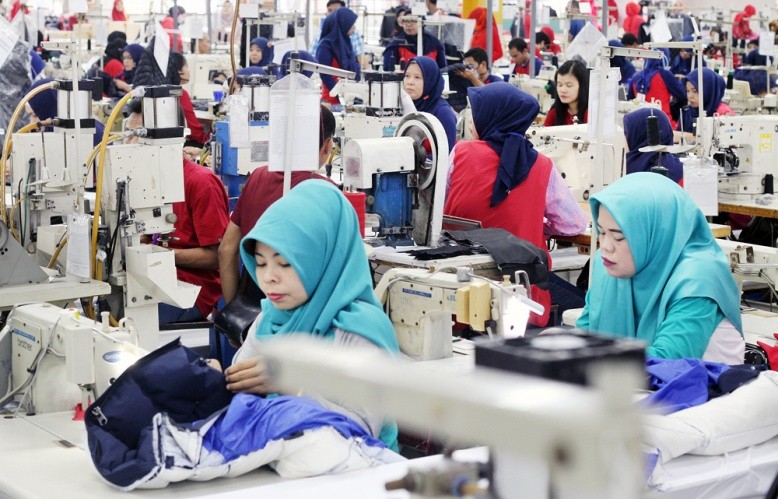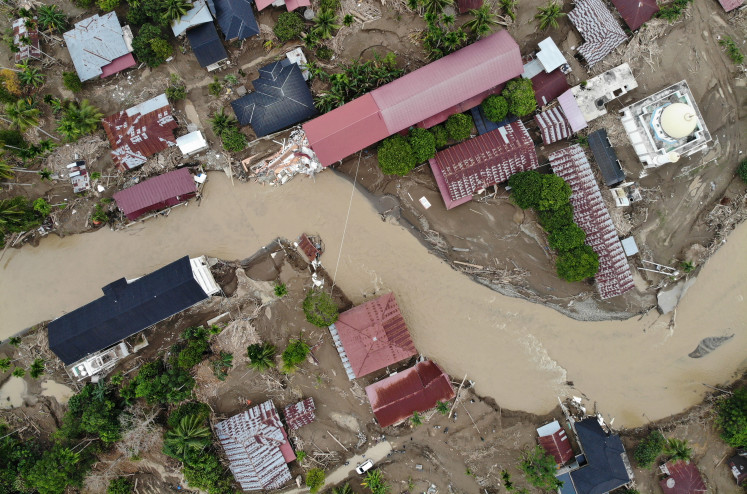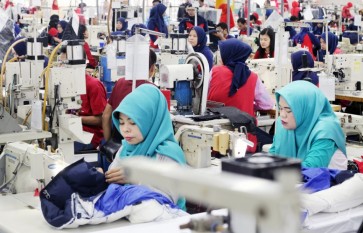Popular Reads
Top Results
Can't find what you're looking for?
View all search resultsPopular Reads
Top Results
Can't find what you're looking for?
View all search resultsOutlook 2020: Textiles: Working together to revitalize textile industry
Change text size
Gift Premium Articles
to Anyone
 Factory fashions: Workers operate sewing machines at a garment factory in Bogor, West Java, in September 2018. The government wants Indonesia to be a top-five world textile producer by 2030, but several businesses in the industry have had to close amid tight competition. (Antara/Yulius Satria Wijaya)
Factory fashions: Workers operate sewing machines at a garment factory in Bogor, West Java, in September 2018. The government wants Indonesia to be a top-five world textile producer by 2030, but several businesses in the industry have had to close amid tight competition. (Antara/Yulius Satria Wijaya)
W
ith Idul Fitri in May 2020 on the horizon, businesses in the Indonesian textile and textile products (TPT) industry should be anticipating a busy start to the year to meet the expected growth in demand ahead of the biggest annual Muslim festive period.
But the prolonged and complex pressures faced by the labor and capital intensive TPT industry may result in a different story this year. The industry — centered mostly in the densely populated provinces of West and East Java — has seen an increasing number of business closures.
Expected growth in unemployment is one serious short-term impact. But what will happen to this distressed industry, which contributes 1.3 percent of the country’s gross domestic product, in the longer term? Why is Indonesia — listed as one of the world’s top 10 textile and apparel producers — facing such challenges in its TPT sector, despite recent positive indicators? Exports in 2019 are estimated to be worth about US$15 billion, up from $13.2 billion the previous year.
How is Vietnam, a relative newcomer to the sector, forging ahead with its exports expected to be worth $40 billion in the same period? Why is the Indonesian textile market flooded with cheap garments, curtains, scarves or even bed sheets from other countries? What makes our production costs so high? How come only one-third of the 3.1-million-ton national capacity is utilized?
Concerned with this situation, President Joko “Jokowi” Widodo has over the last two months held two meetings, in September and November, with the two main TPT industry associations — the Indonesian Textile Association (API) and the Association of Indonesian Filament Yarn and Fiber Manufacturers (APSyFI). His questions were straightforward: What are the critical challenges faced by the industry? What are the recommendations? What and how can the government help?
Some actions have been quickly executed by his ministers as a follow-up. After a recent inspection at a bonded logistics center (PLB), Finance Minister Sri Mulyani Indrawati found irregular practices at the site and revoked dozens of licenses of TPT importers. These irregular practices at PLBs are considered to be among the main contributing factors causing a flood of imported cheap materials into the domestic market.
The finance minister also issued temporary safeguard measures on several TPT commodities. Related ministries and agencies, including the Investment Coordinating Board (BKPM), are expected to follow suit with longer-term strategic plans to rescue the industry.

















